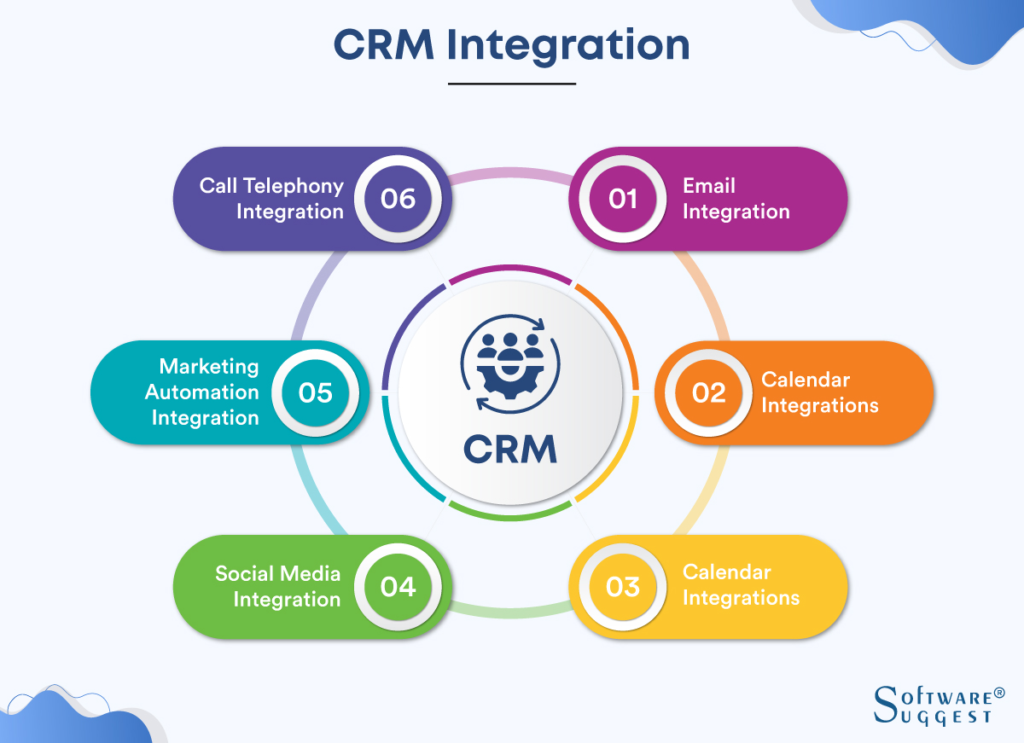
Customer Relationship Management (CRM) is a strategic approach that businesses use to manage their interactions and relationships with customers. It involves the implementation of technology, processes, and systems to streamline and enhance customer interactions throughout their entire lifecycle, from initial contact to post-purchase support. CRM plays a vital role in building customer loyalty, improving customer satisfaction, and ultimately driving business growth.
The Importance of CRM in Business Growth
CRM is crucial for businesses of all sizes and industries. It enables companies to gain a deeper understanding of their customers, anticipate their needs, and deliver personalized experiences. By focusing on building strong customer relationships, businesses can enhance customer satisfaction, increase customer retention rates, and generate repeat business.
Moreover, CRM helps in identifying new sales opportunities, improving marketing campaigns, and providing better customer support, ultimately leading to improved business performance and growth.
Key Components of CRM
CRM comprises various components that work together to optimize customer interactions. These components include:
- Customer Data Management: Effective CRM relies on accurate and comprehensive customer data, including contact details, purchase history, preferences, and feedback.
- Sales and Marketing Automation: CRM systems often integrate with sales and marketing tools to automate processes such as lead generation, lead nurturing, and sales pipeline management.
- Customer Service and Support: CRM helps businesses provide efficient customer service by organizing customer inquiries, tracking support tickets, and streamlining issue resolution.
- Analytics and Reporting: CRM systems provide insights into customer behavior, sales performance, and marketing effectiveness through data analysis and reporting functionalities.
Benefits of Implementing CRM in Business Operations

Implementing CRM in business operations offers several benefits that contribute to overall growth and success:
- Improved Customer Satisfaction: CRM enables businesses to deliver personalized experiences, timely support, and tailored offers, leading to higher customer satisfaction levels.
- Enhanced Customer Retention: By nurturing strong customer relationships, businesses can increase customer loyalty, reduce churn rates, and retain valuable customers.
- Increased Sales and Revenue: CRM systems help sales teams identify upsell and cross-sell opportunities, track leads, and manage the sales pipeline more effectively, resulting in increased sales and revenue.
- Streamlined Marketing Campaigns: CRM allows for targeted marketing campaigns based on customer segmentation and preferences, resulting in higher campaign effectiveness and ROI.
- Efficient Customer Support: With CRM, businesses can track customer inquiries, monitor support tickets, and provide timely and effective resolutions, leading to improved customer support experiences.
Strategies for Effective Customer Relationship Management
To ensure successful implementation and utilization of CRM, businesses should consider the following strategies:
- Customer-Centric Approach: Prioritize the needs and preferences of customers by focusing on delivering personalized experiences and building long-term relationships.
- Data-Driven Decision Making: Utilize customer data and analytics to gain insights and make informed decisions regarding marketing, sales, and customer support efforts.
- Cross-Departmental Collaboration: Foster collaboration between different departments, such as marketing, sales, and customer service, to ensure a holistic approach to customer relationship management.
- Continuous Improvement: Regularly evaluate and refine CRM strategies, processes, and systems to adapt to changing customer needs and market dynamics.
Choosing the Right CRM System
Selecting the appropriate CRM system for your business is crucial for successful implementation. Consider the following factors when choosing a CRM system:
- Scalability: Ensure that the CRM system can accommodate your business’s current needs and future growth.
- Integration Capabilities: Look for a CRM system that can seamlessly integrate with your existing tools and platforms, such as marketing automation and sales software.
- User-Friendliness: Choose a CRM system that is intuitive and user-friendly to encourage adoption and ease of use among employees.
- Customization Options: Opt for a CRM system that allows for customization to match your business’s unique processes and workflows.
Integrating CRM with Marketing and Sales Efforts

Integrating CRM with marketing and sales efforts is essential for maximizing its benefits. By aligning these functions, businesses can:
- Leverage Customer Data: Use CRM data to create targeted marketing campaigns, personalized messaging, and sales strategies based on customer insights.
- Track and Nurture Leads: CRM integration enables tracking leads throughout the sales funnel, nurturing them with relevant content and offers, and improving conversion rates.
- Measure Marketing ROI: Connect CRM data with marketing campaigns to measure the effectiveness of different marketing channels, campaigns, and customer segments.
Enhancing Customer Interactions through CRM
CRM empowers businesses to enhance customer interactions at every touchpoint. Some key strategies for leveraging CRM to improve customer interactions include:
- Personalization and Customization: Utilize CRM data to personalize customer experiences, tailor product recommendations, and offer targeted promotions.
- Timely and Relevant Communication: Leverage CRM automation features to send timely and relevant messages to customers based on their preferences and behavior.
- Omnichannel Engagement: Use CRM to provide consistent and seamless experiences across multiple channels, such as email, social media, website, and phone.
- Proactive Customer Support: CRM enables businesses to anticipate customer needs, address concerns in a timely manner, and provide proactive support.
Analyzing and Utilizing Customer Data
CRM systems collect a wealth of customer data that can be utilized to drive business growth. By analyzing and utilizing customer data effectively, businesses can:
- Segment Customers: Group customers based on demographics, behavior, purchase history, or preferences to create targeted marketing campaigns and personalized experiences.
- Identify Trends and Patterns: Analyze customer data to identify trends, patterns, and opportunities for product development, marketing strategies, and sales efforts.
- Predict Customer Behavior: Use predictive analytics to forecast customer behavior, identify potential churn, and proactively address customer needs.
- Continuous Improvement: Continuously monitor and analyze customer data to identify areas for improvement and refine CRM strategies and processes.
Challenges in CRM Implementation
Implementing CRM can come with its own set of challenges. Some common challenges include:
- Resistance to Change: Employees may resist adopting new CRM systems or changing their existing processes and workflows.
- Data Quality and Integrity: Ensuring the accuracy, completeness, and integrity of customer data can be challenging, requiring regular data cleansing and maintenance.
- Integration Complexity: Integrating CRM with existing systems and platforms can be complex and time-consuming, requiring technical expertise.
- Training and User Adoption: Proper training and education are necessary to ensure employees understand the value of CRM and are proficient in using the system.
Overcoming CRM Challenges
To overcome CRM challenges and maximize its effectiveness, consider the following strategies:
- Executive Support: Obtain support from top-level executives to drive CRM adoption and encourage employee buy-in.
- User Training and Support: Provide comprehensive training, user guides, and ongoing support to ensure employees are comfortable and proficient in using the CRM system.
- Data Governance and Management: Establish data governance policies, data quality standards, and regular data maintenance processes to ensure accurate and reliable customer data.
- Change Management: Implement change management strategies to address resistance to change and communicate the benefits and impact of CRM implementation.
Key Metrics for CRM Performance Evaluation
To measure the success and effectiveness of CRM, monitor the following key metrics:
- Customer Satisfaction and Loyalty: Measure customer satisfaction scores, customer retention rates, and repeat purchase behavior.
- Sales Performance: Track metrics such as sales revenue, conversion rates, average deal size, and sales pipeline velocity.
- Marketing Effectiveness: Analyze metrics like campaign ROI, lead generation, customer acquisition costs, and customer lifetime value.
- Customer Support Efficiency: Monitor metrics such as average response time, ticket resolution time, and customer support satisfaction scores.
Conclusion
Customer Relationship Management (CRM) is a powerful tool for businesses to enhance customer interactions and drive business growth. By adopting a customer-centric approach, leveraging customer data, and integrating CRM with marketing and sales efforts, businesses can improve customer satisfaction, increase sales, and achieve long-term success. With the right strategies and tools in place, CRM empowers businesses to build strong and lasting relationships with their customers.
Check our blog articles here for more topics you might be interested in.